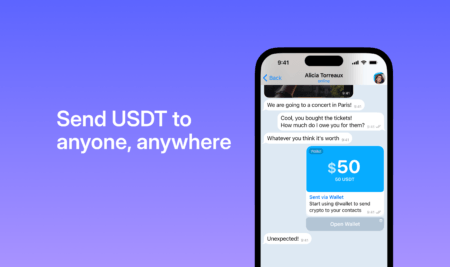Written by: Zane Huffman. Zane is a veteran freelance writer in the cryptocurrency space since 2013. His work ranges from breaking news and live journalism to technical tutorials and developer documentation. Zane’s pinpoint areas of focus in the space lie in privacy coins and blockchain gaming.
Many cryptocurrency projects claim to offer financial privacy. But just masking transaction data isn’t useful on its own, and privacy coins will fail if they don’t provide the mechanisms necessary for true privacy.
Opaque blockchains, untraceable transactions, and private addresses are all essential elements of any cryptocurrency designed to protect user privacy. And there are many, many privacy coins which claim to provide these, with varying degrees of success. However, these components are just ONE part of the privacy formula, and maybe not even the most important part.
As development teams compete to provide private transactions in ever more efficient and secure ways, they are repeatedly ignoring other necessities and leaving their users exposed: specifically, what’s the point in putting so much effort and computing power into making transactions private, if we still have to use insecure methods to arrange those transactions in the first place?
The Communication Problem
In a free and fair financial transaction, currency must change hands in exchange for a good or service deemed of equal value. If we’re bartering, this fair-value exchange requires some level of communication to agree on a mutually agreeable price.
Of course not many people haggle nowadays, but even shopping at fixed prices requires communication. When businesses and individuals transact using a privacy coin, they still need some channel through which they can communicate pertinent information, such as the cost of the goods and the payment addresses associated. Then the purchase actually has to be delivered. Transactions involving physical goods require a shipment address, or a prearranged time and place to collect items in person. Services will require a way to communicate when, where and how the service will be provided.
If this information is communicated through channels that are not 100% secure, then who cares if the transaction itself was private? Governments or other unwanted parties can hijack communications and snoop out metadata to find the identities of the parties involved.
This isn’t just a theoretical problem. This exact thing repeatedly happens in darknet busts. Merchants, despite dealing in Monero, are routinely raided by enforcement agencies due to weaknesses in their operational security. The private and secure XMR is simply confiscated alongside everything else. The fact of Monero’s privacy does nothing to prevent it being confiscated or protect the owner; it’s realistically only as strong as the weakest link in a user’s opsec.
Websites can be hacked. Edward Snowden’s explosive 2013 revelations showed that activity on messaging systems is monitored and recorded by default. There are, of course, apps built with privacy and security in mind, but even leading services like WhatsApp, Telegram, and Signal are routinely hacked or otherwise compromised, leaking the activities of their users.
Just as a chain is only as strong as its weakest link, a cryptocurrency is only as private as the least private form of communication employed by its users. But why should users have to use multiple forms of communication at all? We can send transaction data privately via blockchain, why not messages as well?
A Comprehensive Solution
We usually think of blockchains as supporting currencies, but a blockchain, for all its innovation, is just an encrypted, decentralized mechanism for communicating data. Typically, this data takes the form of units of coin, and privacy projects tend to restrict data communication on-chain to just currency transactions.
At face value, this seems logical. Privacy coins are created for private financial transactions, so why not create a network solely for these transactions? After all, blockchains are often slow and cumbersome. Bitcoin can barely handle all the financial transactions it needs to process: adding messages would bring the network to a standstill (or, more accurately, the fees to send a message would be so high that it would be pointless).
But financial privacy extends far beyond the transactions themselves, and not all privacy needs are financial. There’s a bad habit in tech spheres of saying “Well if we can’t solve the problem, then the users should just adapt.” But that’s completely backwards. Privacy NEEDS communication, so if you can’t create a blockchain that can efficiently handle both financial transactions and messaging, then you don’t actually have a privacy solution: end of story.
Outside of the privacy niche, numerous blockchains have taken the transition to more holistic, worthwhile functionalities. Ethereum’s smart contracts set the stage for more nuanced crypto interactions. And since its inception, several ecosystems have worked to build comprehensive solutions to pertinent industries: from supply chain management, to cloud computing, to decentralized finance.
Fortunately, several projects in the privacy niche are building their take on a future-focused plan of attack. Enigma aspires to act as a privacy layer on top of existing networks, so users can deal in private smart contracts. ZCash incorporates private contracts on their blockchain. However, both still fail to really solve the “bigger picture” privacy problem.
A new contender, Stegos, takes on a more ambitious approach, embracing the capacity of the network to communicate nuanced data. Stegos transactions are reworked as a message bus, where transactions can take the form of one-on-one and group private messages alongside financial transactions. This makes secure communication accessible as a first-party service, ensured by the same security standards as standard currency transactions.
In a broader sense, a versatile blockchain like Stegos, with a broader framework for transactions, can foster more nuanced team and community network developments in the same manner as Ethereum or otherwise. From here, the same third-party privacy services required for worthwhile use of Monero or other privacy coins could be replicated as network apps, and packaged for a one-stop privacy ecosystem for its users.
Looking Ahead: OTC Trading Made Private
With on-chain private transactions plus messaging, a completely private, encrypted ecosystem for over-the-counter trading can be achieved.
A primary concern for investors and users of old guard privacy coins like Monero and ZCash is how they can move their funds into and out of privacy coins. Centralized exchanges are no help, as identity verification is required, and exchange activity is tracked and recorded. Once again, the weak link jeopardizes the whole chain.
For traders and business owners looking to keep their dealings private, infrastructure to privately take capital in and out of privacy coins is critical. Until now, no-one has been able to meet that need.
But a programmable privacy blockchain, packaged with messaging services, can offer decentralized, OTC exchange. When it’s all on-chain, the universally feared on and off-ramps are eliminated, and users stay safe.
OpenBazaar Done Right
Once upon a time, OpenBazaar was the “killer app” meant to push cryptocurrency adoption to the mainstream, a peer-to-peer online marketplace where anyone could create and share their own digital storefront and engage with zero-fee, zero-intervention e-commerce.
OpenBazaar launched several years ago and continues to operate, but it failed to capture much attention. Why? Because OpenBazaar failed to create a trustless marketplace that was also private. The platform only operates in Bitcoin, a pseudonymous currency that — despite mainstream scaremongering about anonymity run amok — everyone in the crypto space recognizes as far from private.
Merchants looking to protect their privacy had no business on OpenBazaar, and perks like zero fees couldn’t spark a mass exodus from centralized alternatives like Amazon or Ebay. Those platforms have such huge clout that it will take more than saving a few cents to draw people away.
Beyond OTC trading, more nuanced potential of a comprehensive privacy network suggests the inevitability of the perfect marketplace. For the first time, users will be able to enjoy end-to-end trading privacy. Merchants can list, sell, and ship products, communicate with customers, and exchange accumulated tokens in an all-encompassing privacy ecosystem.
For a privacy coin to succeed in protecting the security and anonymity of users, every aspect of their activities and interactions must remain private and encrypted. ZCash and Enigma are moving in this direction. Stegos embraces holistic privacy with an all-encompassing network. Under this framework, a truly private, intuitive, and accessible OpenBazaar is finally possible. For privacy coins to survive and thrive in the long run, other initiatives must similarly shift towards a private ecosystem, beyond just financial transactions.









